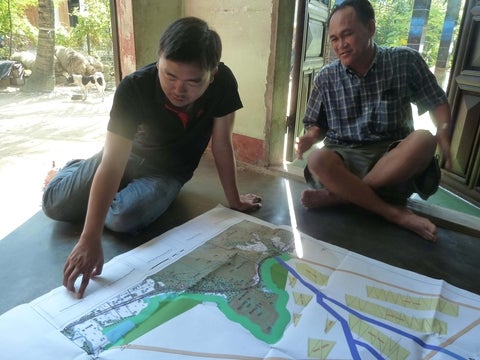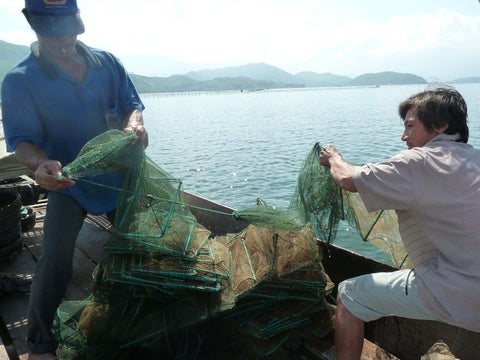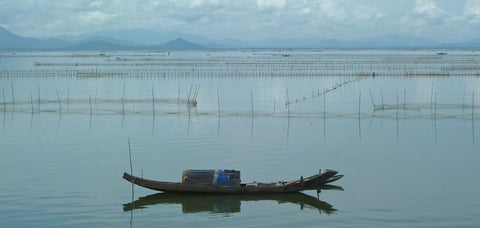There is often discussion in academic circles about the need to share research results beyond our own tight-knit circles of similarly minded researchers. As a graduate student I have attended classes, participated in workshops and conferences, and read peer-reviewed papers and opinion pieces that consistently advocate for better communication from scholars. The arguments typically stem from the need for integration across disciplines and/or the need to make our research more accessible to the public. There have been some active discussions recently on Twitter about open access publications and the importance of making the results of our publicly funded research available to the general public. There is undoubtedly also value in receiving feedback on our research from people who come from diverse backgrounds and who can add valuable insights for broader knowledge production.
A common suggestion coming out of these discussions is that we need to write (and speak) in language that is relatively free of jargon and comprehensible for people who aren’t familiar with our own field of specialization. I am in the middle stages of my PhD – currently doing fieldwork in Vietnam – and I have been reflecting on an aspect of sharing our research that is seldom mentioned: We talk a lot about sharing the results of our research, but we also need to create awareness by communicating the purpose and importance of our ongoing research. Production of knowledge is inherently a social exercise and it is important to engage with the people around us about the work that we are doing. Effective communication takes practice. Effective communication requires an interested and engaged audience. And we have a role in generating interest in our research.


In my experience doing fieldwork in Vietnam (and previously in the Canadian Arctic) I am asked on an almost daily basis to explain what I am doing, which for me means talking about my research with anyone from rural fishing households to university researchers to tourists. In addition to the usual challenges of distilling complex, theoretical ideas, I am often tasked with explaining my research across language barriers. To my own detriment, I am often determined (stubborn??) to give my explanations with enough nuance that it doesn’t overly water down the questions that I am tackling. Not an easy task.
While I was preparing for my PhD comprehensive exam, my advisor Derek Armitage said to me one day, “Just explain things as if you were teaching someone about them for the first time. How would you explain these things to your grandmother?” This was fantastic advice for me and has helped me develop a healthy mindset for my writing. My comprehensive paper wasn’t exactly appropriate for a general audience but this advice reminded me to strip everything down and explain my thoughts one step at a time.
To get down to the task of writing a plain language summary, there is a funny and brilliant new tool available for limiting your writing to the 1000 most used words in the English language. As I co-discovered with my colleague Steve Alexander via Twitter, many of the key words associated with my research are not in the top-1000 list (see here for our exchange). Here is a list of words that I’d like to use but are deemed ineligible:
|
|
|
In light of the reality that none of the key words related to my work crack the top-1000, this is what I have come up with:
"I talk to people about long-time changes in their lives. These people live in the middle of Vietnam and they catch animals in the water. Sometimes the changes in the water and animals are big enough that the world seems like a different place and the lives of the people are not the same as they were in the past. I want to know if they feel that these changes make their lives easier or harder. I also want to know what they do to deal with the changes to the water and animals. I think that it is a good idea for people to work together to fix problems and I am trying to find ways of helping people to work together. The people with power need to listen to the people who catch animals in the water because they know a lot of things. Everyone can learn from each other. There will be more changes and problems in the times ahead but if everyone has the chance to share their ideas, it will be better for making a good living and keeping the animals in the water safe."
The end result: This was an entertaining activity for me but I don’t think it explains my research very well. I also had to break the top-1000 word rule in order to use “Vietnam” (the alternative was “in a place on the other side of the world from where I live”).
In more academic terms, there are three main aspects of my research: characterizing the long-term transformation of the Cau Hai lagoon social-ecological system in central Vietnam; identifying local fishers’ perceptions of thresholds for ecosystems and thresholds for their wellbeing; and assessing the emerging co-management network of resource users, government departments, and other stakeholders who influence resource management in the lagoon. I’m hoping that the combination of the two descriptions above should provide a rough picture of what I do… or at least pique your curiosity enough to ask me some questions!
Questions or comments can be sent directly to Mark at mandrach@uwaterloo.ca or on Twitter @MarkAndrachuk. This research is being carried out with the aid of a Doctoral Research Award from the International Development Research Centre (Ottawa, Canada) and a SSHRC doctoral award.
